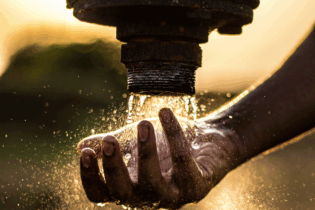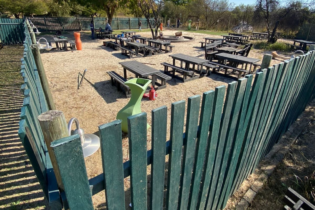The Southern African Plastic Pipe Manufacturers Association (SAPPMA) is workings towards eliminating lead entirely from all locally-manufactured plastic pipe products. SAPPMA was established to create absolute quality, trust and integrity throughout the value chain of the industry, and DPI Plastics is a founding member of the non-profit organisation, which successfully eliminated all lead stabilisers from SAPPMA members’ piping products in 2010 – five years ahead of the anticipated European Union (EU) targets.
Following this unprecedented success, SAPPMA and its members are now driving forward an initiative with the South African Bureau of Standards (SABS) to exclude lead stabilisers from all future SABS specifications. DPI Plastics product manager, Renier Snyman, says, “Lead has been used as a PVC pipe stabiliser worldwide for more than 40 years and has excellent heat and UV resistance, which ensures a good cost-to-performance ratio. During the manufacturing process, the lead is chemically bonded into the PVC pipe and cannot leach from the pipe. What’s more, all pipes containing lead undergo annual SANS 966 tests to ensure that the stabiliser does not leak. These tests, which are carried out by the SABS for various metals, have proven that lead is one of the metals least likely to leak – with a maximum expected leakage of 50µg/ℓ, which is negligible.” Although lead creates no immediate risk to the end-user whatsoever, it does pose a serious risk during the manufacturing process, as raw lead comes in powder form and creates a toxic dust that can be inhaled and absorbed into the skin by factory workers and suppliers of the lead stabilisers,” he explains.Snyman notes that SAPPMA members began the process of removing lead stabilisers from the manufacturing process in 2006, and has now replaced it entirely with calcium/zinc and organic-based stabilisers that are non-toxic to humans.“Calcium/zinc stabilisers have been used in PVC applications for more than 25 years and, in addition to being non-toxic, they are essential elements to the human body. Organic-based stabilisers are predominantly based on uracyl technology and are; therefore, heavy metal and odour free, and approved for potable water and food contact applications,” he continues.
Although the process of removing lead from PVC piping has been long and costly for SAPPMA members, Snyman stresses that it vitally-important for future sustainability. “SAPPMA members agreed to begin the process of removing lead stabilisers from their products in 2006. At that time, the price of alternative stabilisers was considerably higher than lead, and all SAPPMA members incurred the additional costs at their own expense, without passing it on to the end-user.” Snyman points out that an estimated 70% of plastic pipe manufacturers in South Africa have eliminated lead stabilisers from their products, which has resulted in a rise in demand and consequent decrease in price, for alternative stabilisers. He does, however, admit that the manufacturing process still remains more expensive due to the fact that higher volumes of alternative stabilisers have to be used in order to achieve the same effect as lead. The cost of manufacturing pipes with calcium/zinc and other organic-based stabilisers is still higher than the lead alternative. However, local manufacturers are becoming more conscious of the health and safety of their workers, and are prepared to cut into their profit margins to reduce the inherent risk of toxic exposure.






